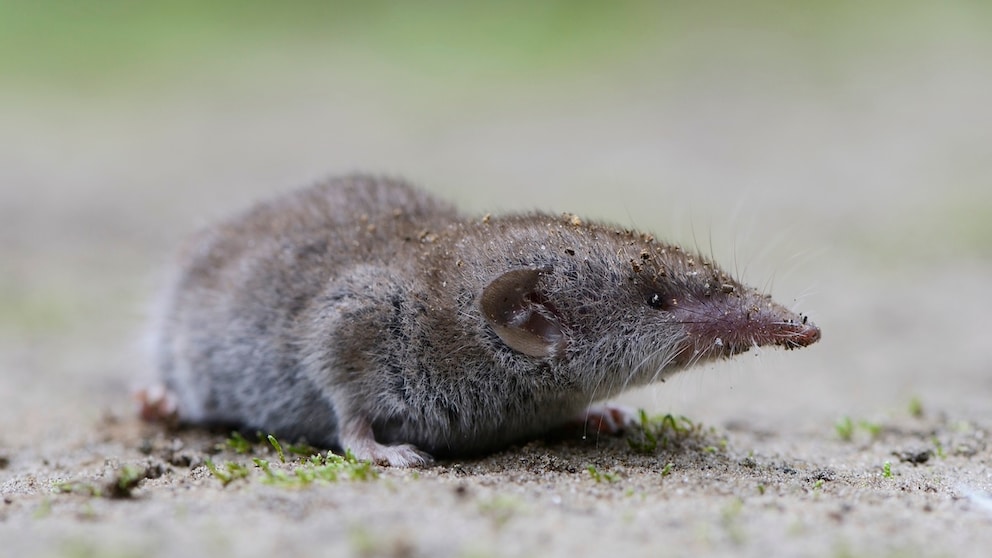October 1, 2024, 11:29 am | Read time: 3 minutes
Shrews are known for scurrying around at high speed and having an extremely fast heartbeat. However, how these animals manage to do this without their heart muscle becoming tired has long been unclear. Now, a study has shed light on the biological process.
The resting heart rate in humans is between 60 and 80 heartbeats per minute. In many smaller mammals, however, this is quite different. Shrews, for example, can reach rates of 1,020 heartbeats per minute. When active, their heart beats even faster. However, how shrews achieve this heart rate has long been unclear. A study has now found the answer as to why they virtually never tire.
Why the shrew’s heart beats so much faster
Many people will probably remember the structure of a heart from biology lessons. Several chambers pump blood through the circulatory system in a complex system. This is achieved through powerful muscle contractions that first pump the blood into its individual chambers and then out again. The vital organ is stimulated by hormones but also needs various nutrients to function properly. For example, certain proteins and amino acids make the muscle more receptive to hormones and encourage it to beat faster or slower.
Calcium ions play a particularly important role in muscle relaxation. A certain protein with two amino acids stimulates the heart muscle to bind these during the beat. The heart can then rest briefly. However, this is not the case in shrews. An international team of researchers has discovered that it is precisely at this point that the heart of a shrew differs from that of a human, as one of these “cardiac amino acids” does not function in them.1
“We discovered that a crucial part of the heart protein that regulates the relaxation time of the heart is missing in shrews and closely related moles. This evolutionary loss permanently removes the brakes on heart relaxation and makes their hearts beat much faster,” explains William Joyce, one of the co-principal investigators at Phys.org.

From 6 to 900! How bats get their heart rate up to full speed

Emotional bond between humans and dogs measured for the first time

What do dogs dream about?
Why shrews need this heartbeat
“This means that the protein always functions as if it were activated by adrenaline, even when the animal is resting, which allows shrews to reach their extreme heart rate,” Professor and co-leader of the study Kevin Campbell explains further at Phys.org.
The mystery of how shrews manage to keep their hearts so efficient without ever tiring seems to have been solved. This fast metabolism is also optimally adapted to the animal’s lifestyle. Shrews – which are neither mice nor rodents but insectivores – have to eat the equivalent of their body weight in food every day.
With their great hunger, they also effectively regulate rapidly multiplying insect populations. Another adaptation to this lifestyle is their anaerobic muscles, which can work without oxygen. Shrews are, therefore, never tired and cannot get sore muscles.
However, climate change and the extinction of insects mean that there are several major problems for shrews. The animals cannot store energy in the form of fat reserves, as all nutrients are immediately required for their metabolism and rapid heartbeat. In times of scarcity, they can starve to death within a few hours if they don’t get enough to eat. A better understanding of their way of life can therefore help to better protect shrews in the long term.

